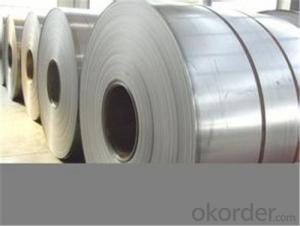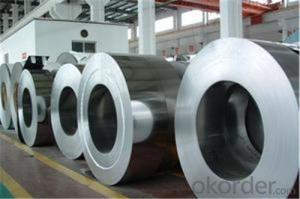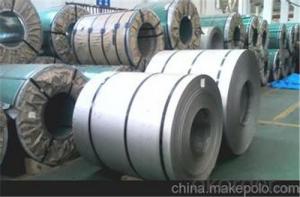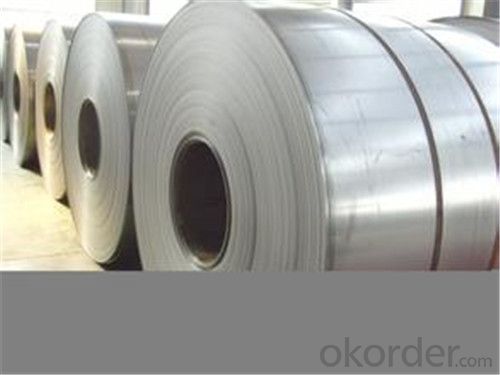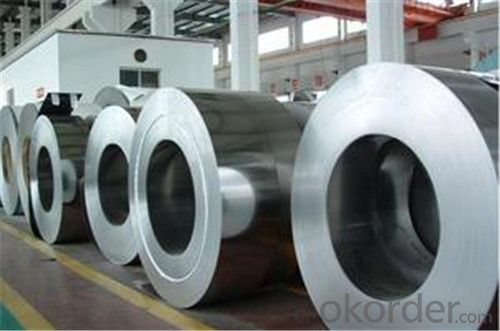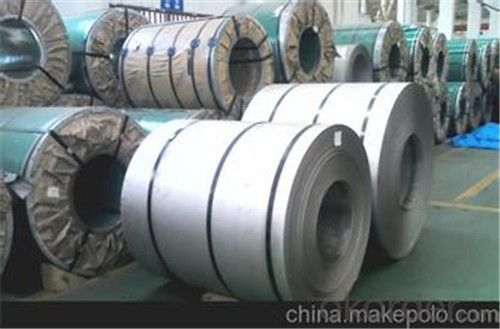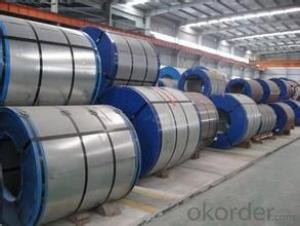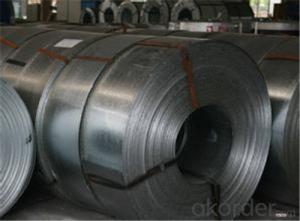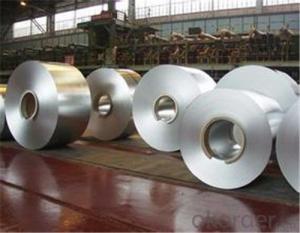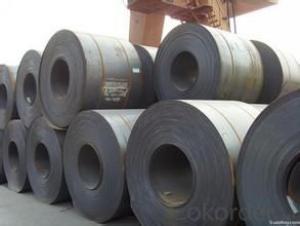Hot Rolled Steel Coil / Sheet / Plate in CNBM from China
- Loading Port:
- Tianjin
- Payment Terms:
- TT OR LC
- Min Order Qty:
- 200 m.t.
- Supply Capability:
- 5000000 m.t./month
OKorder Service Pledge
OKorder Financial Service
You Might Also Like
Description:
The raw material of cold rolled steel coil/sheet is high quality hot rolled product, and after pickling, kinds of new technology and new process of global cold rolling production have been applied. Therefore the manufacturing, home appliance, automobile etc.
Specification:
COLD ROLLED STEEL | |
Thicknenss | 0.10mm-4.00mm |
Width | 600mm-2000mm |
Sheets length | 1200-6000mm |
Coil inner diameter | 508-610mm |
Surface treatement | matt finish/bright finish,oiling/dry, bright anneal/black anneal |
Coil weight | 3-5t |
Characteristic:
Quality of the goods could be guaranteed. The finished product has a variety of excellent capabilities, such as continuous rolling, degreasing, annealing, skin pass, slitting and cut to length line etc. Along with it many rocessing capability and smooth, flat surface. It’s widely used in outdoor and interior decoration, furnishing
Details:
We can ensure that stable quality standards are maintained, strictly meeting both market requirements and customers’ expectations. Our products enjoy an excellent reputation and have been exported to Europe, South-America, the Middle-East, Southeast-Asia, Africa and Russia etc.. We sincerely hope to establish good and long-term business relationship with your esteemed company.
Images:
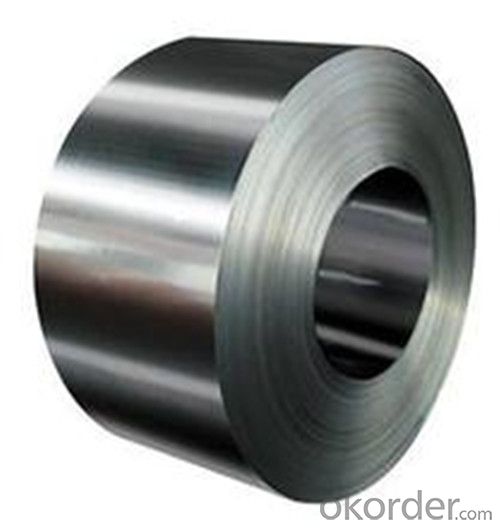
FAQ
1.What's your MOQ?
50MT, it is for one container.
2.Whether your company have QC teams?
Yeah, sure, our QC team is very important, they will keep the quality control for our products.
3. What's your normal delivery time?
Our delivery time about 10-20days for standard sizes, if you have other requirements like hardness and width ,it is about 20-40days. But don't worry ,we also try our best for the
- Q: What are the different types of steel coil coatings available?
- There are several types of steel coil coatings available, including polyester, polyvinylidene fluoride (PVDF), siliconized polyester, plastisol, and acrylic. Each type of coating has its own unique properties and benefits, such as durability, resistance to corrosion and weathering, and aesthetic appeal. These coatings can be applied to steel coils to enhance their performance and appearance in various industries, such as construction, automotive, and appliances.
- Q: How are steel coils used in the packaging industry?
- Steel coils are used in the packaging industry to create sturdy and durable packaging materials, such as metal drums, cans, and containers. The coils are unwound and shaped into the desired form, providing a strong and protective barrier for various products during storage and transportation.
- Q: 7850kg/cu.m density is typical for all type of steel? like reibar, I- beam and so on
- 90% of the steels used today are plain mild carbon steels consisting of iron with less than 1% carbon content and as such have a density of about 7750 kg/cubic meter. Some special steels which have a significant percentage of alloying elements such as chrome or manganese or other elements will have greater density bringing the steel up to about 8000 kg / cubic meter. There are a greater many factors influencing the exact density of a steel. Even for steels of exactly the same content of iron , carbon and other alloying elements, there may be a difference ( very small mind you ) in density due to work hardening. The difference in this case is due to movement of dislocations which become locked in the grain boundaries and this forms a more dense crystal structure. For this same reason, the theoretical density of steel (which does not take into account dislocations) is greater than the measured density of steel.
- Q: Are steel coils used in electrical equipment manufacturing?
- Yes, steel coils are commonly used in electrical equipment manufacturing. Steel coils are often used as core material in transformers, motors, and generators due to their magnetic properties and ability to efficiently transfer electrical energy. They provide structural support and help enhance the performance and efficiency of electrical equipment.
- Q: How are steel coils processed for cutting to length or blanking?
- Steel coils are processed for cutting to length or blanking through a series of steps. First, the coil is uncoiled and flattened to remove any inherent deformities. Then, the edges are trimmed to ensure uniform width and straightness. Next, the coil is fed into a leveling machine to eliminate any remaining inconsistencies in thickness. Once leveled, the steel is conveyed to a cutting machine where it is precisely cut into individual sheets of desired length or blanks. These sheets or blanks are then stacked and prepared for further fabrication or distribution.
- Q: How are steel coils used in the production of HVAC systems?
- Steel coils are used in the production of HVAC systems as a key component in the heat exchange process. They are typically used in the condenser and evaporator coils to transfer heat between the refrigerant and the air. The steel coils provide a durable and efficient surface for heat transfer, ensuring the HVAC system can effectively cool or heat the air.
- Q: it seems like the hardness of Stainless steel, i saw 410c stainless stell, i saw 440c stainless steel, what does it means anyway?
- It's okorder / Stainless steel Grades [list is not exhaustive] 200 Series—austenitic chromium-nickel-manganese alloys 300 Series—austenitic chromium-nickel alloys Type 301—highly ductile, for formed products. Also hardens rapidly during mechanical working. Good weldability. Better wear resistance and fatigue strength than 304. Type 302—same corrosion resistance as 304, with slightly higher strength due to additional carbon.
- Q: What materials are used to make steel coils?
- Steel coils are primarily made from a material called steel, which is an alloy composed mainly of iron and carbon. The specific type of steel used to make coils depends on the desired properties and applications. Generally, carbon steel is the most common type used, as it offers strength, durability, and versatility. Other alloying elements may be added to enhance certain properties or characteristics of the steel, such as manganese, silicon, nickel, or chromium. The production of steel coils involves melting down the raw materials, refining the molten steel, and then shaping it into coils using specialized equipment and processes.
- Q: How are steel coils used in the production of steel pipes?
- Steel coils are used in the production of steel pipes by being unwound and fed through a series of rollers that shape and weld the steel into a seamless or welded pipe.
- Q: How are steel coils used in the production of furniture components?
- Steel coils are commonly used in the production of furniture components as they provide a strong and durable material for construction. These coils can be shaped, cut, and formed into various components such as frames, supports, and brackets, adding strength and stability to the furniture. Additionally, steel coils can be coated or painted to enhance their appearance and protect against corrosion, making them versatile and long-lasting materials for furniture manufacturing.
Send your message to us
Hot Rolled Steel Coil / Sheet / Plate in CNBM from China
- Loading Port:
- Tianjin
- Payment Terms:
- TT OR LC
- Min Order Qty:
- 200 m.t.
- Supply Capability:
- 5000000 m.t./month
OKorder Service Pledge
OKorder Financial Service
Similar products
Hot products
Hot Searches
Related keywords
